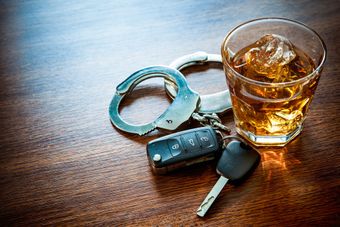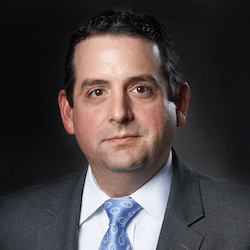About Hanlon Law
Table of ContentsHanlon Law - The FactsOur Hanlon Law StatementsIndicators on Hanlon Law You Need To KnowThe Ultimate Guide To Hanlon Law
When an offender goes on trial for supposedly devoting a criminal activity, a prosecutor should establish that the defendant is guilty of the crime beyond a sensible question. At the exact same time, the criminal offender is qualified to provide a defense and also might do so through a variety of methods. The offender may try to jab holes in the prosecutor's situation, say that another individual committed the criminal activity, or say that she or he did devote the crime however had a lawful and sensible defense for doing so.
In some states, the protection of insanity will certainly permit an accused to avoid jail however will need that the offender be kept in a psychiatric facility for treatment. The protection of drunkenness Depends on the theory that the accused can not satisfy all of the components of the criminal offense due to the fact that he or she did not understand what he or she was doing (criminal defense attorney in Orlando fl).

Hanlon Law Fundamentals Explained
Mistake of regulation uses when a criminal accused thought his or her actions were legal. This defense uses in just extremely minimal conditions. Self-defense (or protection of an additional) Duress Requirement One more classification of defenses uses when the defendant dedicated the crime however says that she or he was justified in doing so.
An accused may argue, for example, that he did shoot a trespasser yet did so in self-defense due to the fact that the intruder was endangering him with a knife. Likewise, under a protection of discomfort, the criminal defendant suggests that he or she only dedicated the criminal offense because she or he was compelled to do so by another person.
Finally, under a requirement protection, the criminal accused may say that she or he devoted the crime in order to protect against an extra considerable damage. The defendant might compete that it was needed for him to swipe a vehicle in order to chase down one more person who was threatening to make use of an eruptive tool.
Initially, the accused may say that no criminal offense occurred due to the fact that of the protection of approval. For instance, the offender might suggest that although intercourse took place, it was not rape because there was authorization. Also, he might suggest that there was no attack because the target granted the damage.
The Single Strategy To Use For Hanlon Law
Third, the defendant might say entrapment. Entrapment takes place when the government induces an individual to commit the criminal offense and afterwards attempts to punish the person for it. The offender might suggest that no criminal activity would have occurred but also for the federal government's attraction, and she or he need to therefore not be called to account.
To effectively convict a criminal defendant, the federal government must confirm the offender was guilty past a sensible question. The most typical defenses criminal defendants may increase can be grouped right into 2 basic classifications initially, denying the accused did anything (consisting of the alibi protection), and second, acknowledging the defendant did the act but just under mitigating conditions (including self-defense, insanity, entrapment, and drunkenness defenses).
As an example, if an offender is charged of devoting a burglary however can verify that he was at the dental practitioner or conference with a repairman throughout the time of the criminal activity, he might succeed in his alibi protection (orlando florida laywer). Self-defense was the vital concern increased in the current George Zimmerman instance. https://hanlon-law82356.develop-blog.com/.
The madness protection is a very intricate defense, however it is usually based upon the suggestion that penalty is only justified if the defendant can regulating their habits. Since some of the psychologically ill are not qualified of identifying right from wrong, the insanity defense stops them from being criminally accountable.
Our Hanlon Law Statements
If, nevertheless, a jury believes that the defendant was inclined to devote the crime anyway, this protection won't achieve success. In Tennessee, voluntary drunkenness does not excuse criminal actions. Nonetheless, a defense of uncontrolled drunkenness may prove successful (https://www.bookmarkfeeds.com/author/hanlonlaw23/). If you've been implicated of a criminal activity, contact a qualified criminal defense lawyer to assist you consider your best strategy as well as acquire the very best possible outcome in your case.
Below are a handful of methods which an accused may insist a successful protection. To convict a criminal offender, the prosecutor has to verify the offender guilty past a sensible uncertainty. As part of this process, the accused is provided a chance to present a defense. An accused may place a defense by remaining silent, absent any kind of witnesses and saying that the district have a peek here attorney fell short to verify his/her case.
There are numerous other types of defenses, from "I really did not do it" to "I did it, yet I was as well intoxicated to understand what I was doing."All individuals accused of a criminal activity are lawfully assumed to be innocent till they are founded guilty, either in a test or as an outcome of begging guilty.
If the prosecutor can't convince the jury that the offender is guilty, the accused goes free. The assumption of virtue, combined with the reality that the district attorney must prove the defendant's regret beyond a reasonable uncertainty, makes it challenging for the government to put people behind bars. The prosecutor must convince the court or jury hearing the instance that the accused is guilty "beyond a reasonable doubt." This requirement is really difficult to fulfill.